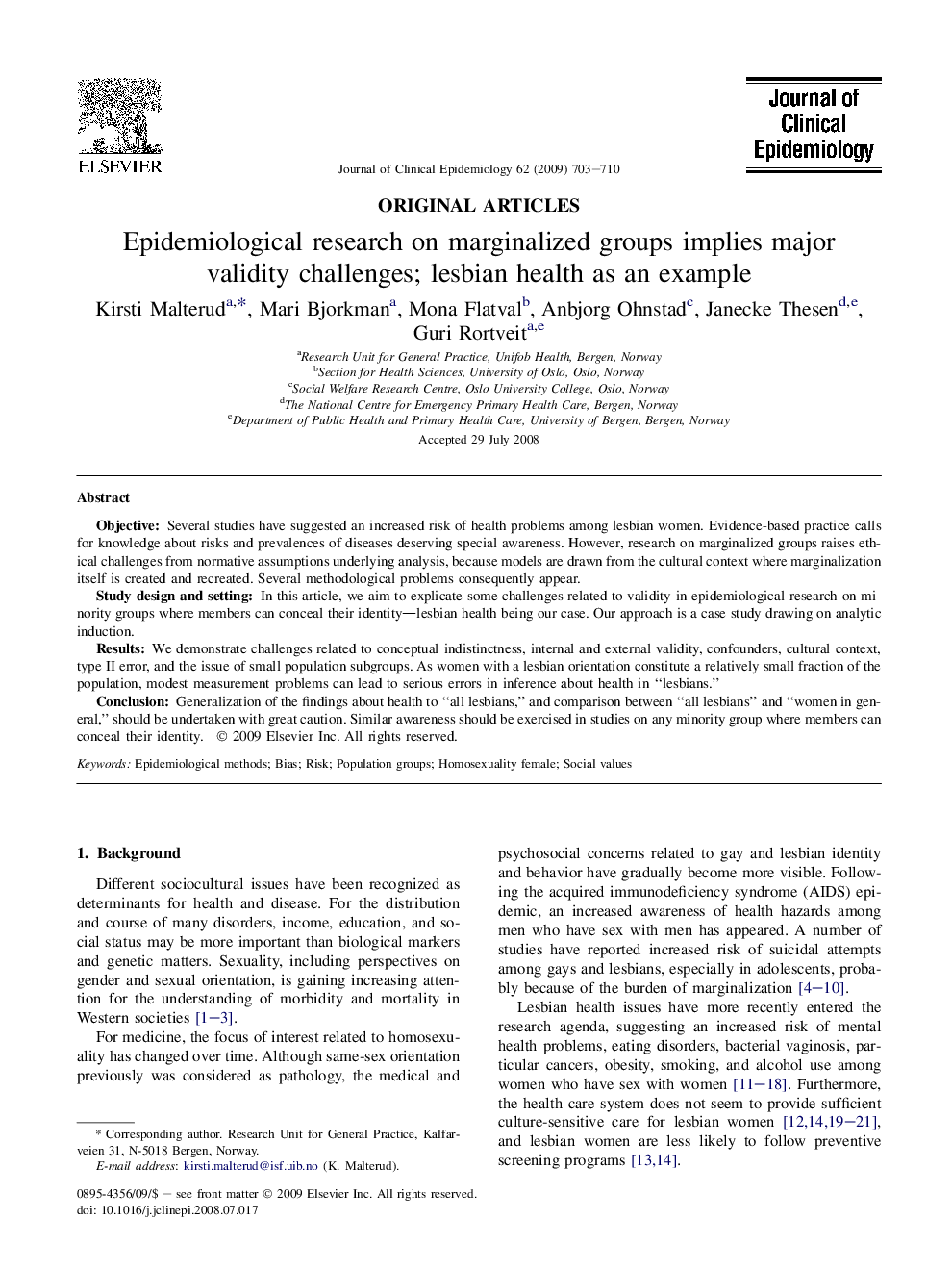| Article ID | Journal | Published Year | Pages | File Type |
|---|---|---|---|---|
| 1082695 | Journal of Clinical Epidemiology | 2009 | 8 Pages |
ObjectiveSeveral studies have suggested an increased risk of health problems among lesbian women. Evidence-based practice calls for knowledge about risks and prevalences of diseases deserving special awareness. However, research on marginalized groups raises ethical challenges from normative assumptions underlying analysis, because models are drawn from the cultural context where marginalization itself is created and recreated. Several methodological problems consequently appear.Study design and settingIn this article, we aim to explicate some challenges related to validity in epidemiological research on minority groups where members can conceal their identity—lesbian health being our case. Our approach is a case study drawing on analytic induction.ResultsWe demonstrate challenges related to conceptual indistinctness, internal and external validity, confounders, cultural context, type II error, and the issue of small population subgroups. As women with a lesbian orientation constitute a relatively small fraction of the population, modest measurement problems can lead to serious errors in inference about health in “lesbians.”ConclusionGeneralization of the findings about health to “all lesbians,” and comparison between “all lesbians” and “women in general,” should be undertaken with great caution. Similar awareness should be exercised in studies on any minority group where members can conceal their identity.
